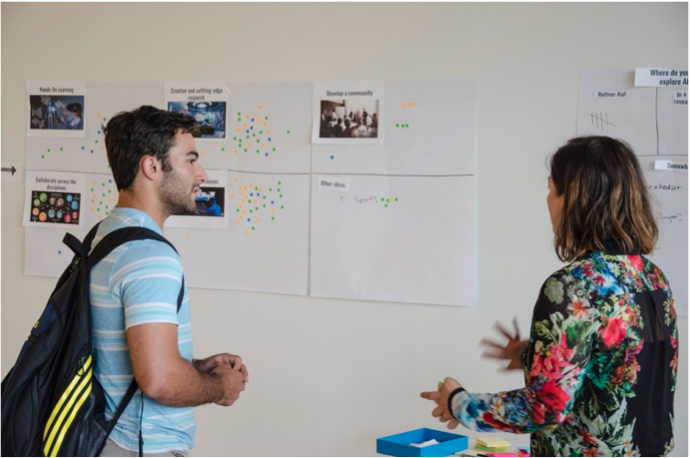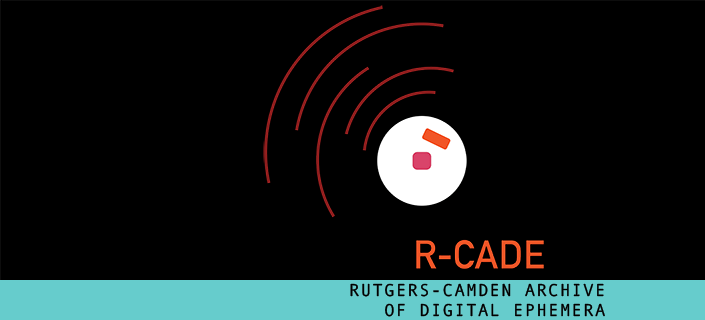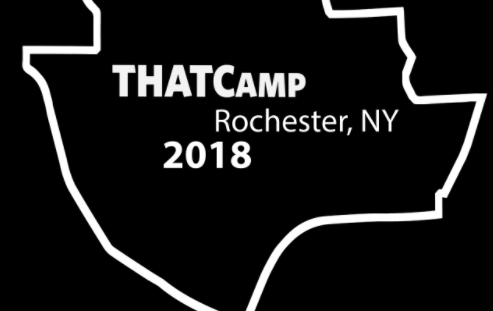 For the past few months, I have served on the steering committee for a proposed Extended Reality (XR) space on the University of Rochester’s River Campus. My tenure as an Andrew D. Mellon Fellow in Digital Humanities has provided me with many opportunities to engage with a broad range of digital tools and techniques aimed at research and teaching. The steering committee, however, has been an opportunity to be involved in the nuts and bolts process behind the development of new digital spaces and opportunities for the university community. As I quickly discovered, this process calls for a very different set of skills than either research or teaching. The process of consulting the various stakeholders, carefully designing charrettes to elicit useful and valuable feedback, and developing a coherent proposal for a functional, accessible space that meets those needs was an enlightening departure from my normal role as a passive user of university spaces and amenities. The vast majority of the credit must go the the committee leader, Director of Research Initiatives, Lauren Di Monte, who brought her extensive experience and knowledge to the process and has taught me a great deal about the skills and careful design that goes into the process.
For the past few months, I have served on the steering committee for a proposed Extended Reality (XR) space on the University of Rochester’s River Campus. My tenure as an Andrew D. Mellon Fellow in Digital Humanities has provided me with many opportunities to engage with a broad range of digital tools and techniques aimed at research and teaching. The steering committee, however, has been an opportunity to be involved in the nuts and bolts process behind the development of new digital spaces and opportunities for the university community. As I quickly discovered, this process calls for a very different set of skills than either research or teaching. The process of consulting the various stakeholders, carefully designing charrettes to elicit useful and valuable feedback, and developing a coherent proposal for a functional, accessible space that meets those needs was an enlightening departure from my normal role as a passive user of university spaces and amenities. The vast majority of the credit must go the the committee leader, Director of Research Initiatives, Lauren Di Monte, who brought her extensive experience and knowledge to the process and has taught me a great deal about the skills and careful design that goes into the process.
The committee’s primary responsibility was to design and execute charrettes, collaborative planning and brainstorming exercises that both identify significant concerns and needs and distill the feedback into structured, actionable ideas. Creating effective charrettes is a delicate process. As a participant in test charrettes over summer, I learned how important the specific parameters of the exercises were in generating useful results. Asking participants to engage with a variety of considerations, from budget concerns to spatial design and conceptual emphases, charrettes help refine vague, general responses into clear, coherent feedback. The process was also particularly encouraging as an example of facilitating and encouraging fruitful interdisciplinary work. Bringing together a broad cross section of stakeholders, from undergraduate, graduate, faculty and library staff, from a wide variety of disciplines, the charrettes were remarkably successful in highlighting shared goals, complementary ideas and the value of diverse perspectives. It was a little surprising, but also very gratifying, to discover exciting parallels between my concerns and aspirations as a digital humanists and those of participants from the hard sciences. At the same time, I also discovered that our differences were also valuable to the process and more than once I found myself considering an idea pitched by someone from a different disciplinary background that had not and would never have occurred to me.
Overall, my experience on the committee has not only been exciting and enriching, but also encouraging. The interdisciplinary tenor of the public charrettes reflects, I believe, the value and the potential of an XR space, and digital scholarship in general, to foster new interdisciplinary relationships and projects. Interdisciplinary collaboration is often extolled as a hallmark of digital humanities, but in practice it remains elusive. Participating in the design for the proposed XR space underscored for me the power and value of engaging with disciplinary perspectives from outside not only history but the humanities as a whole In the process of planning itself, I participated in and observed a surprisingly amount of interdisciplinary collaboration and cross-pollination of ideas as diverse groups came together to attack challenges and negotiate parameters with admirable gusto and imaginative solutions. The success of the sessions has reinvigorated my hopes for interdisciplinary collaborations, and left me with a quiet optimism towards the proposed XR space as an exciting venue for new forms of fertile collaboration.
James S. Rankine is a 2017-2019 Andrew Mellon Fellow and PhD Candidate in the Department of History.








 Education: BA, History with Honours First Class, University of Queensland, 2005; MA, History, University of Rochester, 2014.
Education: BA, History with Honours First Class, University of Queensland, 2005; MA, History, University of Rochester, 2014.